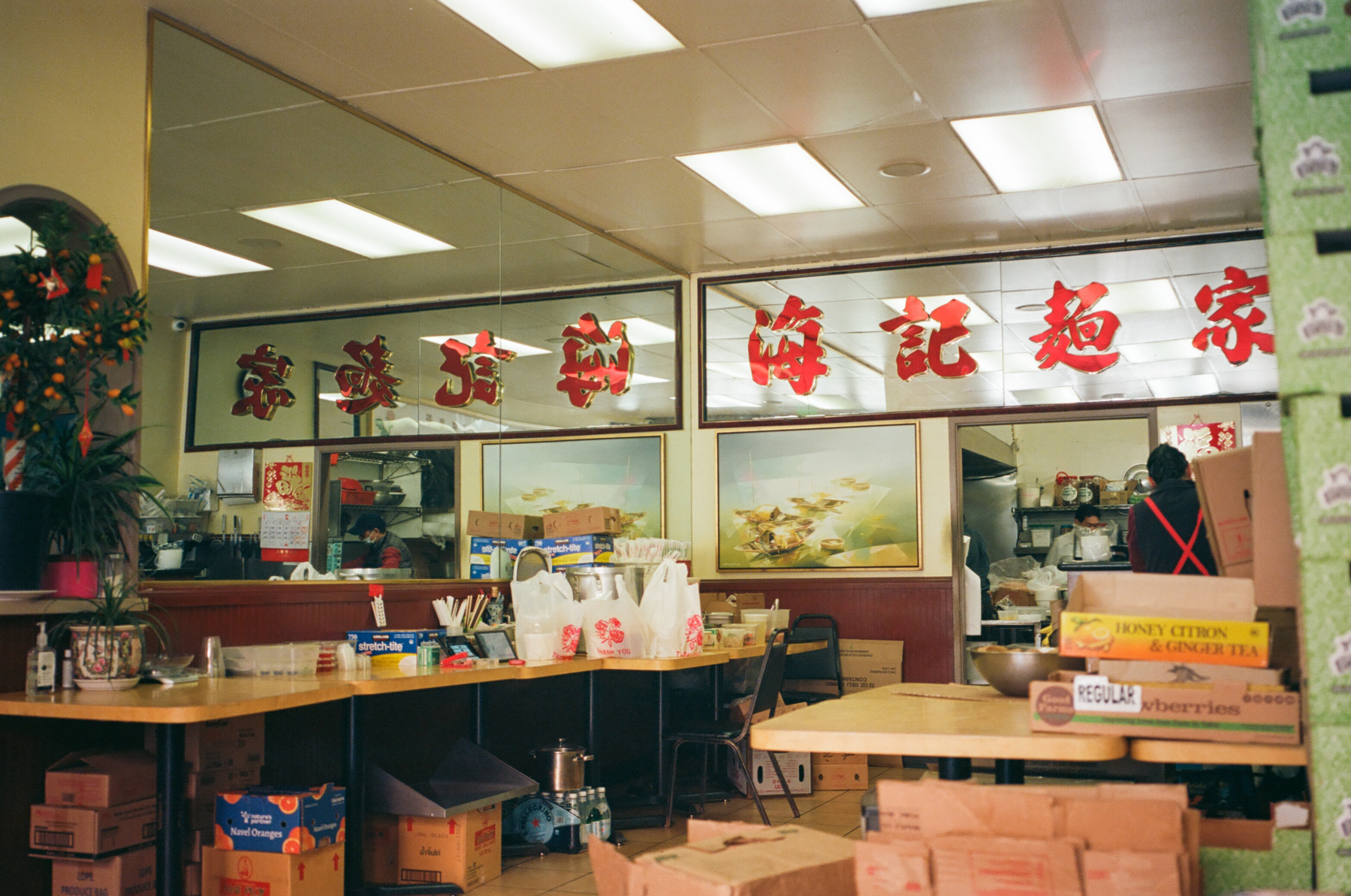
Rollei QZ 35T, Ektar 100, developed and scanned by Underdog Film Lab in Oakland.
I talk about this sometimes: for various reasons, my cultural identity as a Teochew / Chaoshan / Diojiu / Chiu Chow person is important to me. Speaking the language regularly is important to me. Being able to eat this food is important to me.
I am now 8000 miles from home but I am anchored by this Vietnamese Teochew noodle house near me. People speak to me in this language on the streets. My dog has a Teochew name. I speak it with my neighbors. On days when I am extremely homesick, I come here and order what I always ate with my grandparents, almost ten thousand kilometres away: dua kway teow tah, mai tau geh, keh ark tui.
(干捞大粿条 / 不要豆芽 / 加鸭腿 / wide rice noodles, soup on the side, no bean sprouts, add a braised duck leg)
The roasted chilli oil (not sriracha), and the soup on the side, makes it especially close to some early childhood memories.
I was especially close to my paternal grandparents, and they were my link to that culture. I felt especially thankful that I got to form these ties with them, the land they came from, and the language they spoke, in ways that many of my peers did not. By the time I was in kindergarten, I realized I was one of the few people of my generation who were able to communicate fluently with them in their first language. The political and education system in Singapore had sought to destroy all ties to non-Mandarin Chinese languages around the time I was growing up. They were largely successful: today, I speak more Teochew on the streets of the Tenderloin in San Francisco, and even more of it in Bangkok, or in Paris, than I do in Singapore (I don’t know more than five people under the age of 50 who speak it well, other than my relatives).
Even as I mourn language loss in one home, I have also cultivated strong links with the community that mostly comprises Vietnamese and Cambodian Teochew people who have moved to the West Coast of the United States. I am thankful to Mr Hua, who reminds me of my late grandfather in his movements and his speech, and in his family members Nancy, Randi, Amy and others who keep these traditions alive so that somehow someone from somewhere else is able to feel like I can live in this country because I am not all alone here.